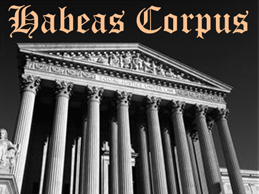Understanding the Duty of a Post-Conviction Legal Representative in Looking For Justice After a Criminal Conviction
In the complex landscape of post-conviction legal process, the function of a post-conviction attorney is critical in browsing the course to justice after a criminal conviction. Beyond the boundaries of a test, these lawyers take part in a diverse method focused on revealing new evidence, tough legal errors, and supporting for their clients' rights. The intricacies of post-conviction job need a blend of lawful acumen, investigative abilities, and critical believing to unravel the intricacies of a situation and pursue methods that may have been forgotten or underexplored. As the quest of justice extends past the confines of first procedures, the role of a post-conviction legal representative becomes a sign of hope for those looking for to remedy injustices and recover their rights within the lawful system.
Post-Conviction Attorney's Investigative Job
Post-conviction lawyers involve in careful investigative job to discover new proof, step-by-step mistakes, or transgression that can possibly bring about reversing a conviction. This investigatory phase is crucial in the post-conviction procedure as it aims to recognize any type of neglected information or legal bad moves that may have influenced the result of the first trial. Post-conviction lawyers dig right into instance documents, witness testimonies, and lawful documentation with a fine-tooth comb, looking for any disparities or irregularities that might be grounds for charm.
Via complete investigation, post-conviction attorneys intend to shed light on prospective oppressions that may have happened throughout the original trial. They might conduct interviews, talk to experts, and testimonial forensic evidence to develop a compelling situation for their customers. By inspecting every facet of the legal procedures, post-conviction lawyers function tirelessly to discover any kind of factors that may have influenced the decision. Inevitably, their investigative work plays an essential duty in the pursuit of justice and the potential reversal of wrongful convictions.
Crafting Appeals and Petitions
In the quest of justice after a sentence, knowledgeable attorneys thoroughly craft appeals and petitions to present compelling disagreements for the reconsideration of legal decisions. Crafting charms and requests needs a deep understanding of the legal system, interest to detail, and calculated thinking. Post-conviction lawyers evaluate trial documents, identify prospective mistakes or infractions of legal rights, and establish legal arguments to test the sentence or sentence.
When crafting a charm, attorneys concentrate on highlighting legal mistakes that might have impacted the outcome of the case. They look into situation legislation, statutes, and lawful criteria to support their debates. Applications, on the other hand, may entail providing new proof that was not readily available during the trial or showing modifications in the law that warrant a testimonial of the conviction.
Moreover, post-conviction legal representatives need to abide by rigorous step-by-step rules and target dates when filing appeals and requests. They should offer their disagreements clearly and persuasively to persuade the court to grant alleviation to their clients. Via precise crafting of allures and requests, post-conviction legal representatives aim to secure justice for people that have actually been wrongfully convicted or unjustly sentenced.

Going After Post-Conviction Alleviation
Post-conviction relief incorporates an array of legal devices designed to challenge the legitimacy of a sentence or sentence. Post-conviction lawyers play an important role in browsing these complex procedures, making certain that all lawful choices are checked out to correct injustices that might have happened during the trial or sentencing stage.
One usual kind of post-conviction alleviation is filing a petition for post-conviction relief, usually based on insurance claims of inadequate aid of counsel, prosecutorial transgression, freshly uncovered proof, or constitutional offenses. Experienced post-conviction legal representatives have the abilities and expertise essential to recognize sensible lawful cases, perform examinations, and existing engaging disagreements to protect relief for their clients.
Utilizing Forensic Proof
When testing a sentence or sentence, the calculated use of forensic evidence can be a powerful tool in post-conviction lawful process. Forensic evidence incorporates a variety of clinical techniques made use of to explore criminal offenses and establish truths in court. Post-conviction lawyers can leverage forensic proof to challenge the validity of sentences by offering new scientific searchings for that were not offered during the initial test.

Involving in Sentence Adjustments
Post-conviction attorneys may check out the possibility of sentence modifications as a legal method to resolve out of proportion or unjustified sentences bied far in criminal situations. Sentence modifications involve looking for adjustments to the regards to an accused's sentence after a conviction has actually taken area. These alterations can consist of decreasing the length of a sentence, modifying the sort of punishment imposed, or you could check here discovering different sentencing choices.
Post-conviction attorneys can pursue sentence alterations with various lawful systems, such as filing motions for sentence decrease, appealing for caring release, or bargaining plea deals for lowered sentences. They need to thoroughly review the conditions of the situation, assess the lawful grounds for looking for an adjustment, and present engaging arguments to the court sustaining the requirement for a modified sentence.
Engaging in sentence modifications calls for an extensive understanding of criminal law, punishing guidelines, and the certain procedures associated with seeking post-conviction relief. Post-conviction legal representatives play a crucial function in advocating for reasonable and simply results by tough sentences that are unduly severe or do not straighten with the concepts of justice.
Conclusion
In final thought, the role of a post-conviction attorney is critical in seeking justice after a criminal sentence. Via investigative job, crafting allures and petitions, going after post-conviction alleviation, utilizing forensic proof, and taking part in sentence modifications, these legal specialists play a vital function in promoting for their customers and ensuring that their legal rights are maintained within the criminal justice system. Their devotion and know-how are essential in navigating the complexities of post-conviction procedures and attaining a reasonable outcome for individuals dealing with criminal sentences.